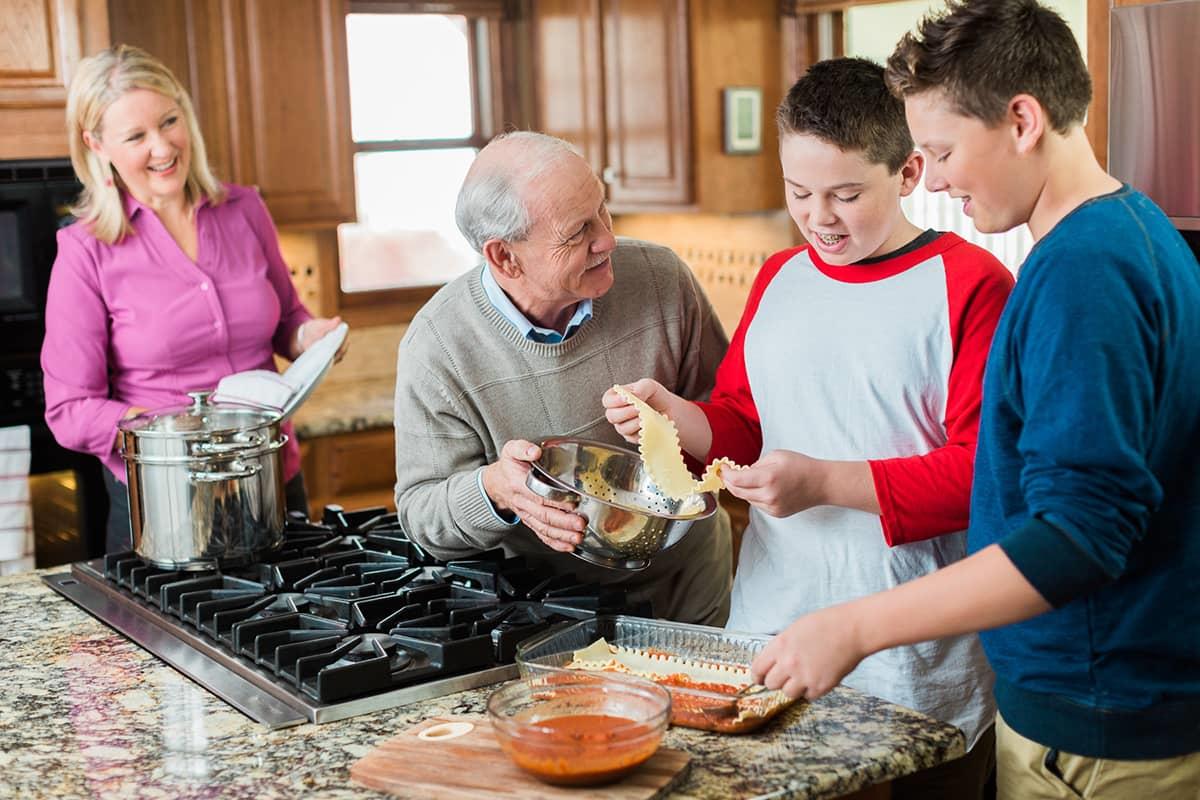Are you contemplating moving several generations under one roof? Are you caught in the “sandwich generation” – caring for aging parents and children?
If so, you are not alone. A study from Generations United finds that the number of Americans living in a multigenerational household with three or more generations has nearly quadrupled over the past decade, increasing from 7 percent to 26 percent between 2011 and 2021.
Generations United estimates 66.7 million adults ages 18+ in the U.S. are living in a multigenerational household; that's more than 1 in 4 Americans. Among those living in a multigenerational household, nearly 6 in 10 (57 percent) say they started or are continuing to live together because of the COVID-19 pandemic.
There are many rewards, like fostering closer relationships and possible financial savings, that come with living together. But multigenerational living also has plenty of challenges, such as emotional stress, caregiving dilemmas and space and privacy issues.
Whether you've already decided to merge households or if you're just thinking about it, now is the time to start discussing the logistics and making a list of pros and cons.
10 Questions to Ask Before Combining Households
- Is it best financially to maintain separate residences or to move in together?
- Do you have the resources to take care of an aging adult in your home?
- Are there young children at home? If so, what do they think about it?
- Which house will you call home – yours or theirs?
- Is the home safe for an older adult and, if not, what changes need to be made?
- How do you handle separate bank and savings accounts, and joint expenses?
- What role will adult siblings play?
- Will you need caregiving help for your aging loved one?
- How do you balance family time and personal time?
- If you're an older adult, will you lose your independence?
Why Families Are Living Together
The reasons different generations decide to live together are as varied as the families themselves, but three factors often come into play.
Shared Caregiving
Families are coming together to share caregiving duties—either an aging loved one needs care or an older adult is providing care to his or her grandchildren.
Physical or Emotional Support
Older adults may feel the need for the physical or emotional support of extended family after losing a spouse, navigating health issues, or challenges maintaining their property.
Finances
The economy is affecting everyone, especially older adults living on fixed incomes. Moving in with family can sometimes save money on food, utilities, and other essentials. Consider these financial planning tips for multigenerational families. Use this calculator to explore estimates on cost of care based on geographic location and care level required.
Remember that planning ahead for tough conversations can help reduce stress.
Communication is the key to making a combined family work, says Matthew Kaplan Ph.D., Penn State Intergenerational Programs and Aging professor. "Families must address the issues at hand—from multiple perspectives—when they arise...Ask yourself, 'What can we do to come together and figure things out?'"



